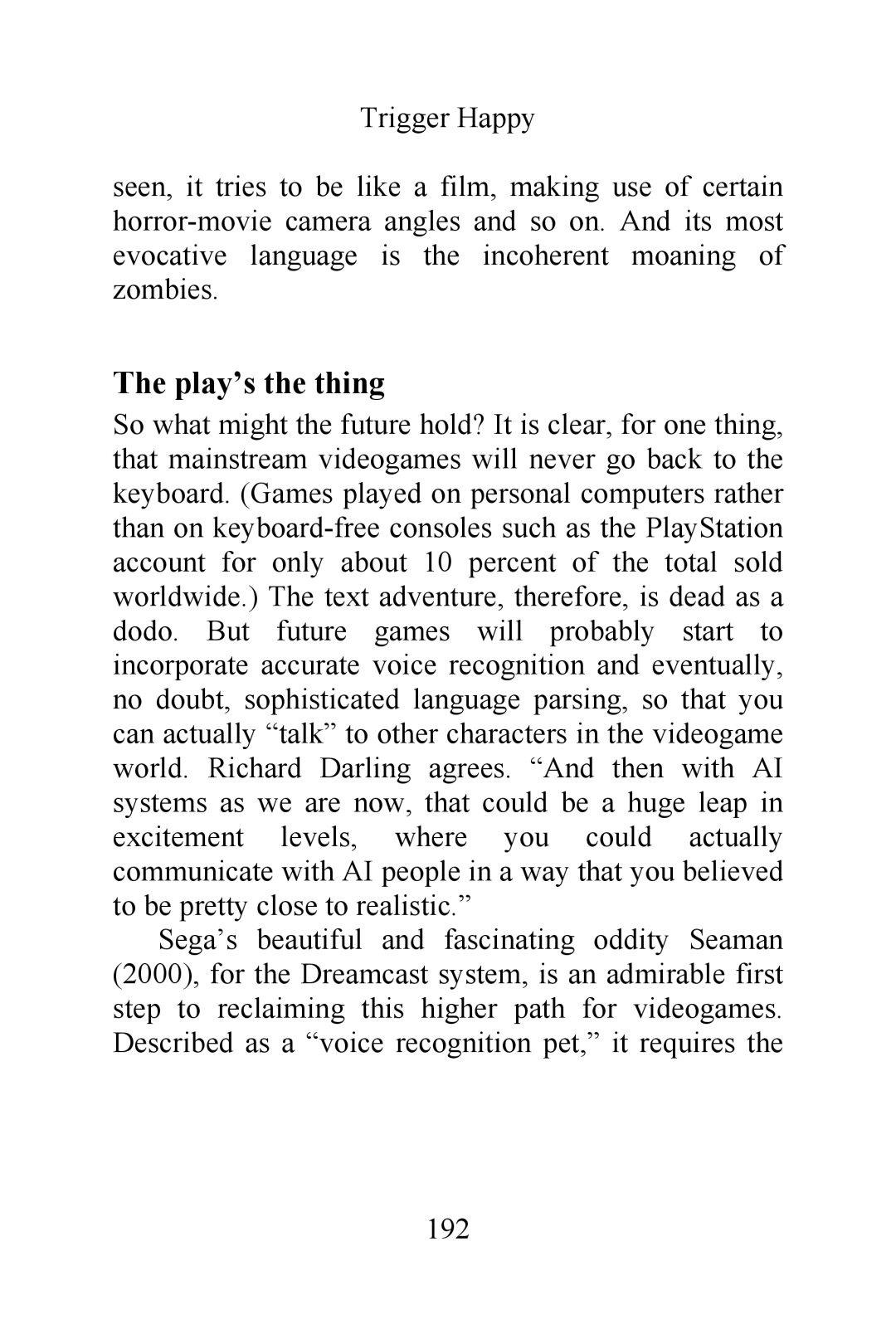Trigger Happy
seen, it tries to be like a film, making use of certain horror-movie camera angles and so on. And its most evocative language is the incoherent moaning of zombies.
The play’s the thing
So what might the future hold? It is clear, for one thing, that mainstream videogames will never go back to the keyboard. (Games played on personal computers rather than on keyboard-free consoles such as the PlayStation account for only about 10 percent of the total sold worldwide.) The text adventure, therefore, is dead as a dodo. But future games will probably start to incorporate accurate voice recognition and eventually, no doubt, sophisticated language parsing, so that you can actually “talk” to other characters in the videogame world. Richard Darling agrees. “And then with AI systems as we are now, that could be a huge leap in excitement levels, where you could actually communicate with AI people in a way that you believed to be pretty close to realistic.”
Sega’s beautiful and fascinating oddity Seaman (2000), for the Dreamcast system, is an admirable first step to reclaiming this higher path for videogames. Described as a “voice recognition pet,” it requires the
192
